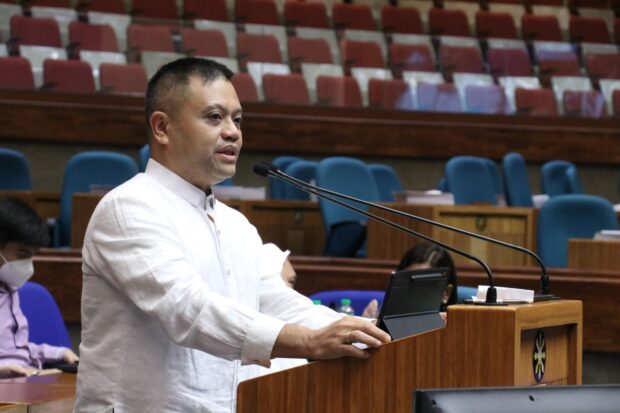Bill hopes ‘digital nomad visa’ clicks as tourism draw
3 min read
Surigao del Norte Rep. Francisco Jose Matugas II, chairman of the House Special Committee on Land Use (INQUIRER FILE PHOTO)
MANILA, Philippines — A House bill wants the Philippines to join a growing list of countries that issue “digital nomad visas” to attract more travelers who, while away from their home-country offices, rely on the internet to accomplish work-related tasks.
Despite the country having one of the slowest internet speeds in the region, Surigao del Norte Rep. Francisco Jose Matugas II hopes that his House Bill No. 8165 would still click.
“I decided to file [this bill] because, for one, we have beautiful beaches in the country that is the No. 1 attraction for this kind of workers,” he told the Inquirer on Wednesday. “It is high time we had this Digital Nomad Act to attract this group of tourists who have the capacity to spend.”
FEATURED STORIES
He said he got the idea particularly when he attended a recent travel fair in Dubai, where he met a number of digital technology professionals based in the Middle East who asked if the Philippines issues visas like those granted by European countries.
Told of the country’s slow internet service as a potential turnoff for such visa applicants, Matugas said: “As far as internet signal is concerned, most of [our] major island destinations already have above-average speed” and “consumers now have more options [in terms of service] providers.”
Pandemic trend
Matugas’ draft measure authorizes the Bureau of Immigration (BI) to issue digital nomad visas, similar to those currently granted by 54 other countries that have taken advantage of the remote working setups and online video meetings that peaked during the pandemic.
“The rapid development of telecommunications technology, coupled with employers’ desire to seek work-life balance, has given rise to a new breed of workers, the digital nomads,” Matugas said, explaining his bill.
He recalled how the pandemic lockdowns forced employees to work from home or remotely, further raising the number of digital nomads. These employees or executives continued to increase even as the pandemic threat waned, the lawmaker noted.
“Many countries have taken advantage of this phenomenon by providing what is known as a ‘digital nomad visa,’ a visa that gives a visitor the right to stay in a country and work remotely for a foreign-based employer or business,” he said.
Big spenders
This new type of visa came about as governments discovered that digital nomads tend to “spend more money than tourists, don’t put much strain on public services, create jobs for locals and even start local businesses,” he said, quoting the findings of a US-based direct sourcing company that had studied the trend.
Under HB 8165, “An alien who is employed in a country other than the Republic of the Philippines, may, upon making an application to the BI, be granted a digital nomad visa to work in the Philippines for a period of 12 months, renewable for another 12 months.”
But recipients must be at least 18 years old, can show proof of sufficient income generated outside the Philippines, and has a valid health insurance covering the period for which the visa is granted. He or she must have no criminal record in their home country or should not be considered a threat to the Philippines.
Digital nomad visa holders will not be listed as a resident of the Philippines for taxation purposes, and the income they receive from their employer abroad would not be considered income from Philippine sources, the bill reads, stressing: “An alien who has been granted a digital nomad visa shall not be employed in the Philippines.”
The BI may revoke the digital nomad visa for any violation of the terms and conditions for its issuance, or if the holder no longer qualifies. The BI is also tasked to keep a registry of persons issued digital nomad visas.
RELATED STORIES
DOT eyes more e-visas for tourists from China, India
BI: Work visas may now be issued to foreigners still overseas
BI: Foreign parents of Filipinos with valid visas can enter PH
EDITORS’ PICK



